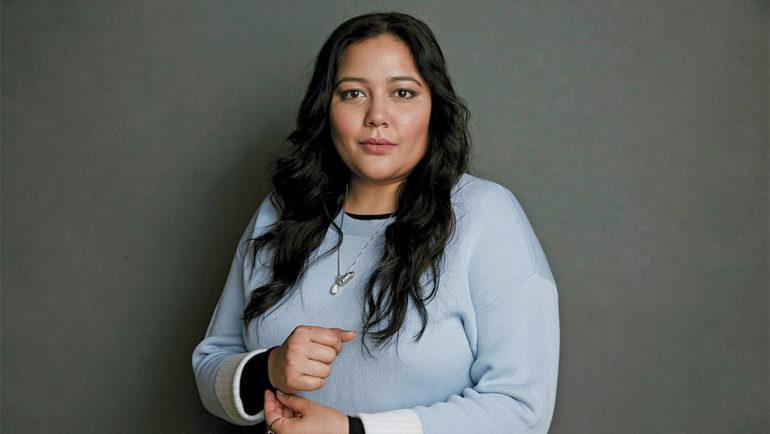‘Hotel Mumbai’ Producer Shivani Rawat Steps Up to the Plate for Indie Films
By Ramin Setoodeh
LOS ANGELES (Variety.com) – Shivani Rawat helped rescue “Hotel Mumbai” from the cold grip of Harvey Weinstein. When she saw the drama, which revisits the 2008 terrorist attacks at the famed Taj Mahal Palace Hotel, the finished movie needed a distributor. The prestige picture starring Dev Patel was up for sale after the closure of the Weinstein Co. and the ousting of its namesake mogul, who’d been accused of sexual misconduct by dozens of women.
“When I watched the film, I remember coming out of the room shaking,” says Rawat, a 33-year-old financier and producer. “I wanted to be part of it immediately.” She thought it was important for the sake of the victims that other people see this tragic story.
Rawat co-acquired the rights and decided to release the movie (which expanded nationwide on March 29) with Bleecker Street, the indie label run by Andrew Karpen. It’s the first time that Rawat’s New York-based production company, ShivHans Pictures, is getting into the distribution business. She’s co-releasing the film with Bleecker Street, a costly proposition that most financiers can’t afford. But Rawat is experimenting with the new business model as traditional indie distributors have become more risk averse. The market for small movies with a theatrical release keeps shrinking. “I’m happy to collaborate with a distributor out there, split the P&A and show the movie,” Rawat says.
Karpen has found a like-minded partner in Rawat, who is driven by a passion for beautifully told dramas. “In a world where it’s getting harder to finance and distribute films, Shivani is stepping up to the plate,” he notes.
Rawat, the daughter of investor Mahipal Rawat, has made a name for herself in Hollywood as the producer of such acclaimed films as “Danny Collins,” “Trumbo” and “Captain Fantastic.” She’s drawn comparisons to Megan Ellison, another woman from a wealthy family making waves in Hollywood, which Rawat finds flattering if not entirely accurate.
“I feel like my movies are different from hers,” Rawat says. “We have a strict budget. It’s always $20 million or under. Someone needs to support independent filmmaking, and I’m there for that.” She’s also more of a boutique producer, with only about two movies a year on her slate. Later in 2019, she’ll release “Brian Banks,” based on the true story of an NFL player who was wrongfully convicted of rape. When Rawat shopped the movie around, she got a lot of passes. That’s when she decided she’d co-distribute that film with Bleecker Street too.
“I feel like no one wanted to take the chance to tell this story,” Rawat says. “I don’t know if it was fear. We got excuses, like ‘We don’t know how to market this film.’ I don’t know what stopped them, but that sure wasn’t stopping me.”
Rawat also has plans to enter the television space, after acquiring “Can’t We Talk About Something More Pleasant?” based on the memoir by The New Yorker cartoonist Roz Chast.
Rawat, who attended New York’s New School and acted in plays in college, says that she has an eye toward telling uplifting stories. On both “Brian Banks” and the upcoming drama “Wander Darkly,” she’s collaborated with other women producers. “Most of my department heads are female,” she says about the latter film, which centers on a couple who survive a horrific car crash. “I always believe that women should help women. If we help each other, a lot can be done. If we support each other, a lot of good stuff can happen.”
She’s experienced sexism in the industry. “As a young girl, when I was going in meetings, nobody took me seriously,” Rawat says. “People were thinking I was the assistant or the intern in the room. But when it would be time to make decisions, they would be like, ‘Oh, you’re the boss.’ And the tone would change.”

